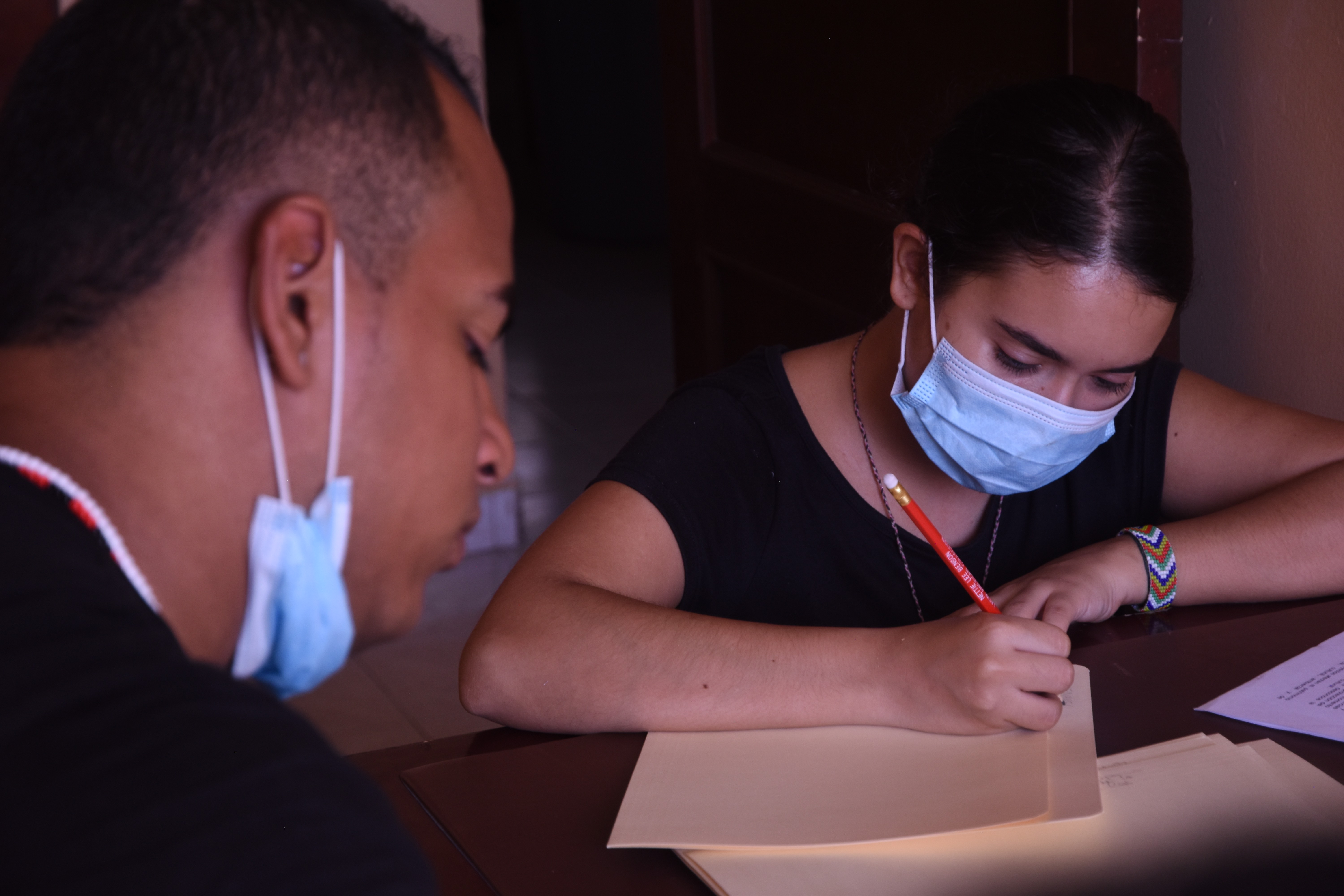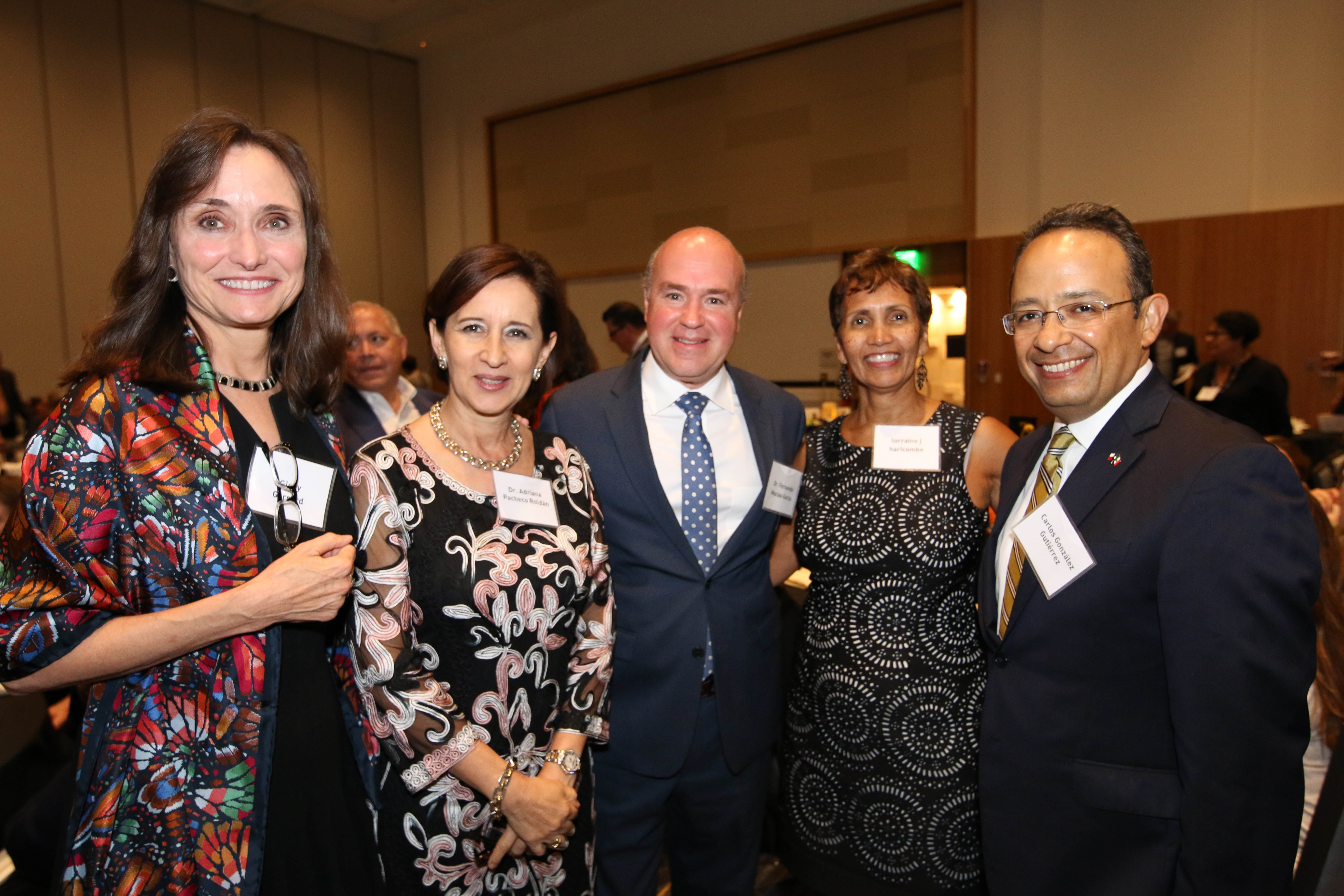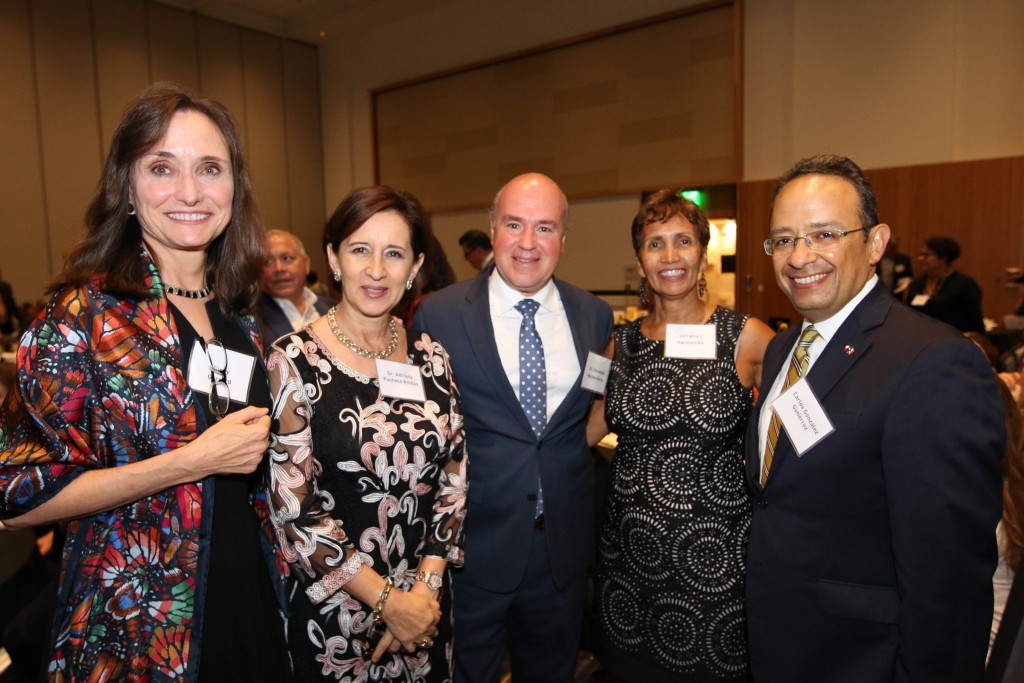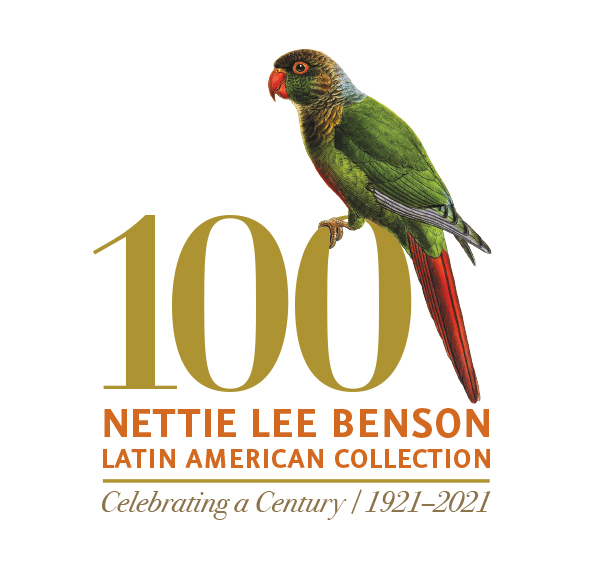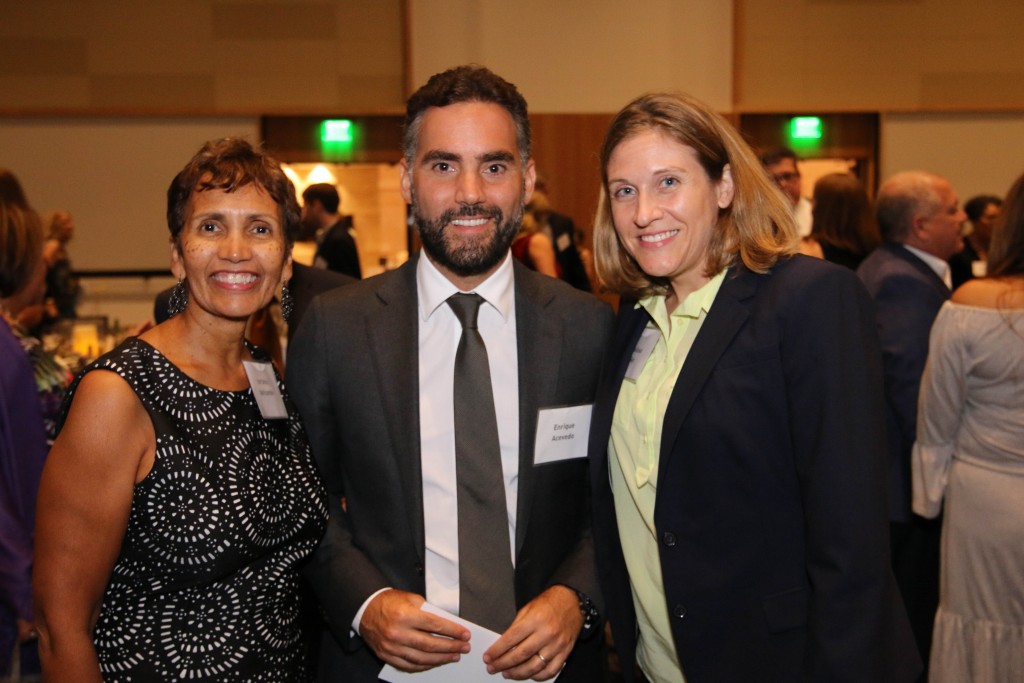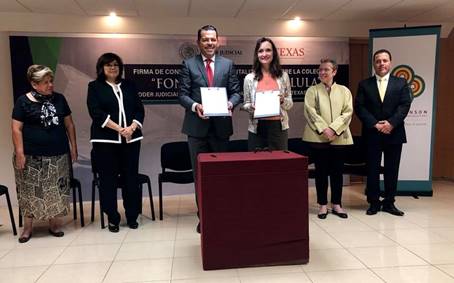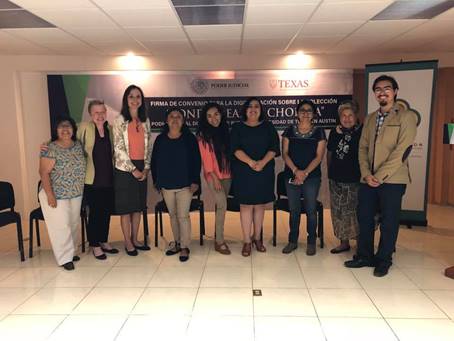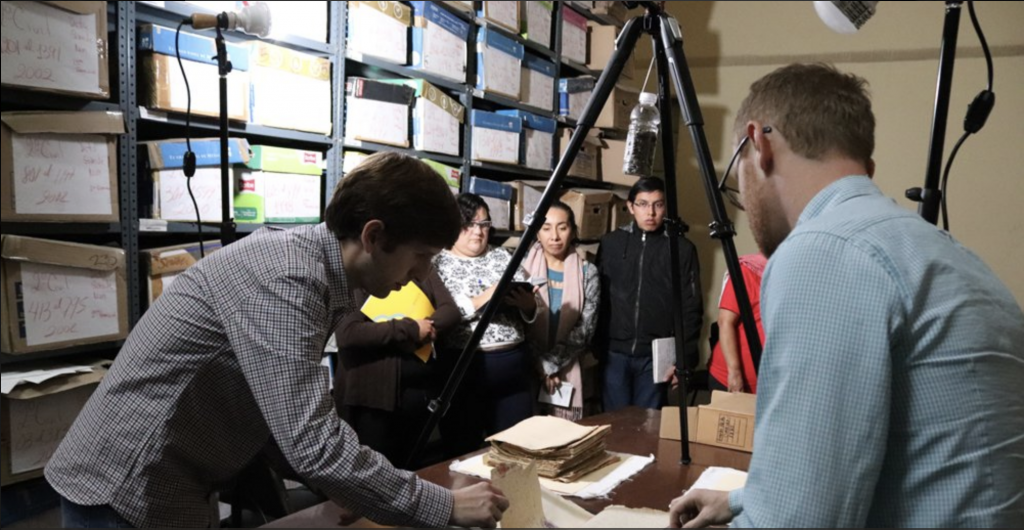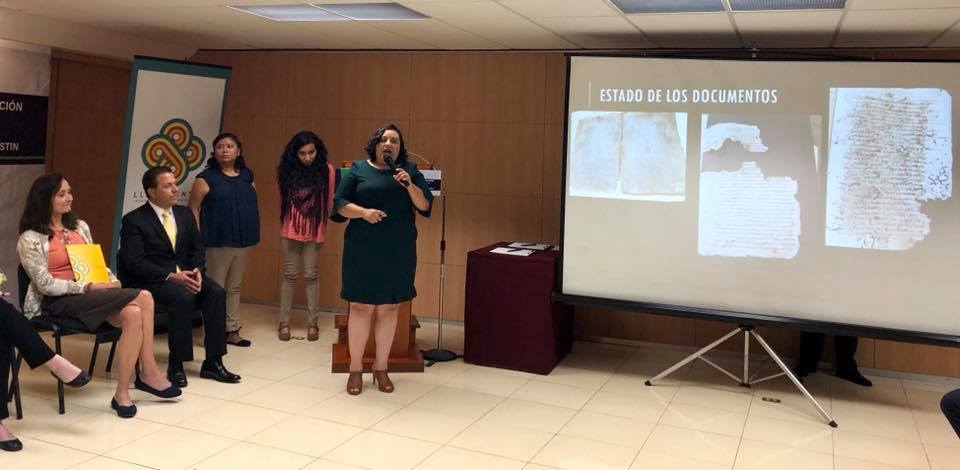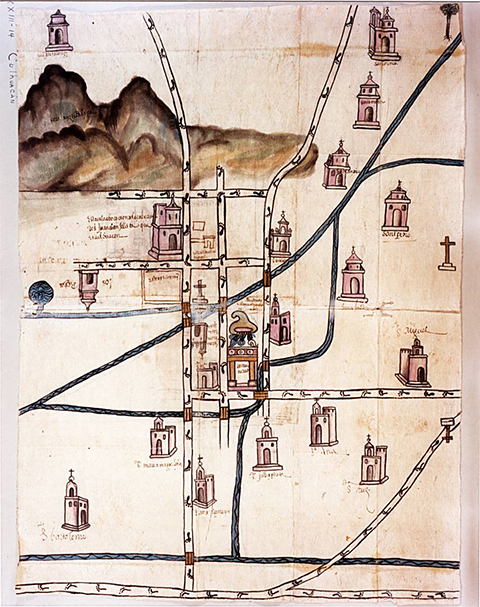BY ITZA A. CARBAJAL
Véase abajo para versión en español.
Along the Pacific coast of Colombia lies the vibrant and growing seaport city of Buenaventura. The city also serves as home to a large portion of Colombia’s Afro-descendant communities. Colombia, with one of the largest populations of Afro-descendant peoples in Latin America, serves as home to countless Afro-Colombians, a large number of whom live in coastal regions or rural areas, and more recently in urban spaces—a result of ongoing displacement.
This past October, the LLILAS Benson Digital Initiatives unit at The University of Texas at Austin launched the second of three post-custodial projects with new partners, the Proceso de Comunidades Negras (PCN), specifically focused on the records held at the Buenaventura office serving the Palenque Regional El Kongal. These materials, held for over two decades by PCN, represent a crucial addition not only to human rights documentation of Colombia’s ongoing war and drug-trafficking related conflicts, but also as testament of resilient efforts by Afro-descendant Colombian communities to define and secure recognition and ethno-racial rights in Colombia. Preliminary selection of potential records to be digitized included photographs of cultural events and community mapping gatherings, notable agendas from previous national asambleas (assemblies), and collaborative environmental and humanitarian reports related to Afro-Colombian community issues.
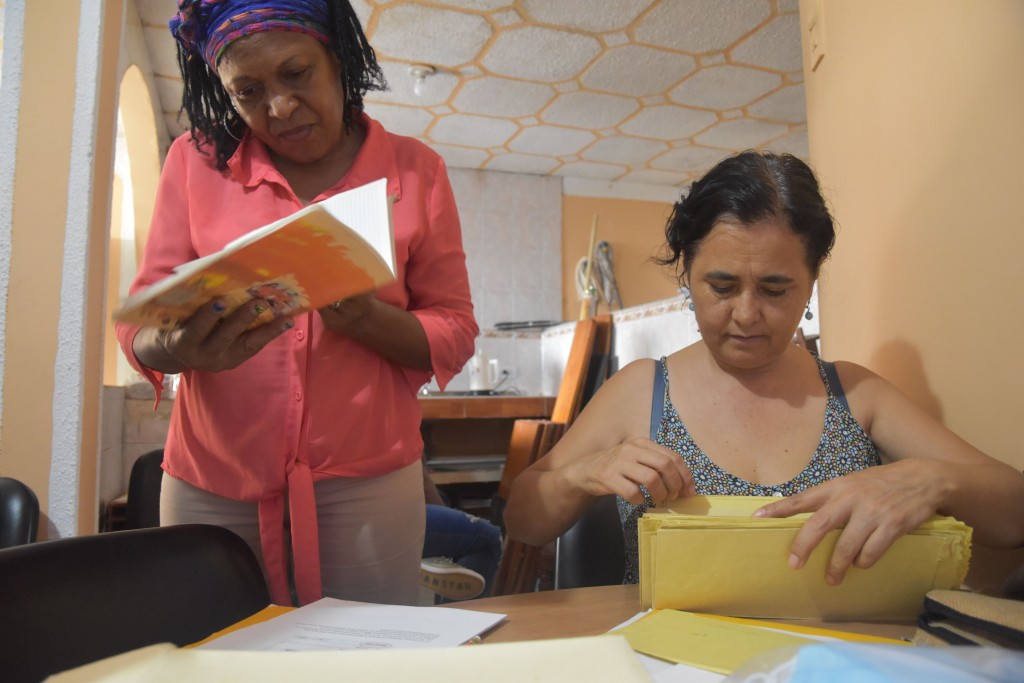
As part of the recently awarded Andrew W. Mellon Foundation grant titled “Cultivating a Latin American Post-Custodial Archival Praxis,” LLILAS Benson’s post-custodial team coordinated a weeklong training in Colombia. As part of the project’s structural support, LLILAS Benson representatives delivered digitization equipment, facilitated financial resources to pay digitization technicians, and developed custom step-by-step guides on how to successfully complete the PCN digitization project. The trainings, held at the offices of PCN and led by Latin American Metadata Librarian Itza Carbajal and LLILAS PhD candidate Anthony Dest, covered multiple topics, including how to scan historic materials using professional equipment, identifying and documenting metadata about collection materials such as photographs, and brainstorming future visions for PCN’s historic archival collections.
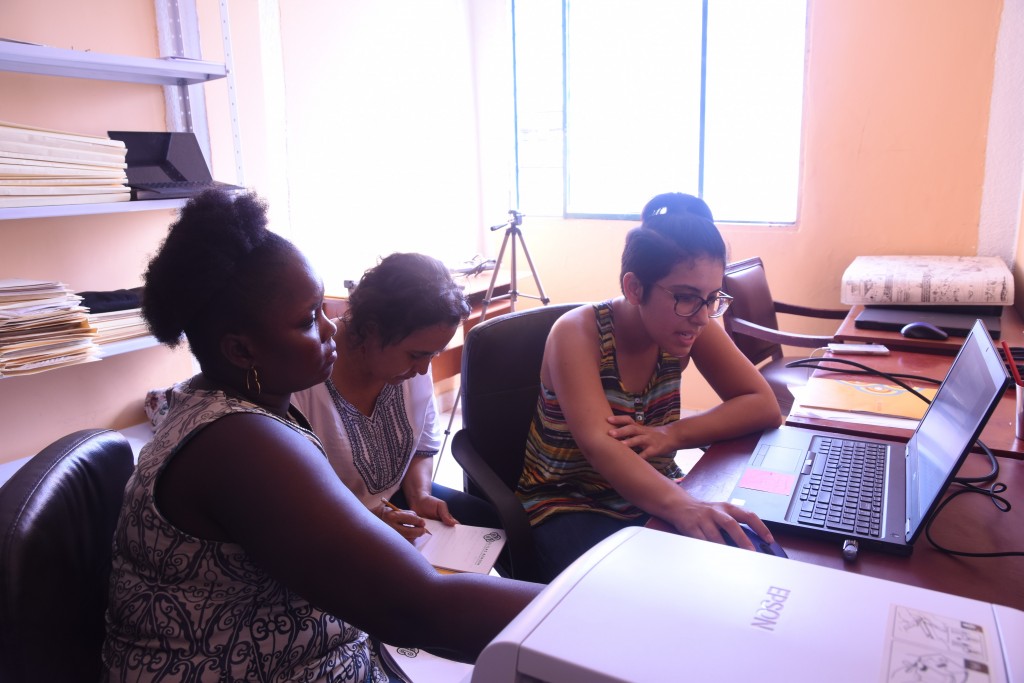
Throughout the training, LLILAS Benson and PCN team members reviewed and conducted preliminary scans and developed descriptions for a variety of records, including photographs of early PCN community events, reports on living conditions of Afro-Colombians in the region, and organizational planning documents for mobilization. After the weeklong training ended, the LLILAS Benson project team returned to the United States, leaving the PCN digitization team to begin their critical work.
In the LLILAS Benson post-custodial model, archivists work alongside partners from other sectors to preserve and manage their archival materials, often including the digitization of physical archives in order for the materials to remain in their original home. The digital copies then take on the role of scholarly resources made available to researchers, students, faculty, and the general public.
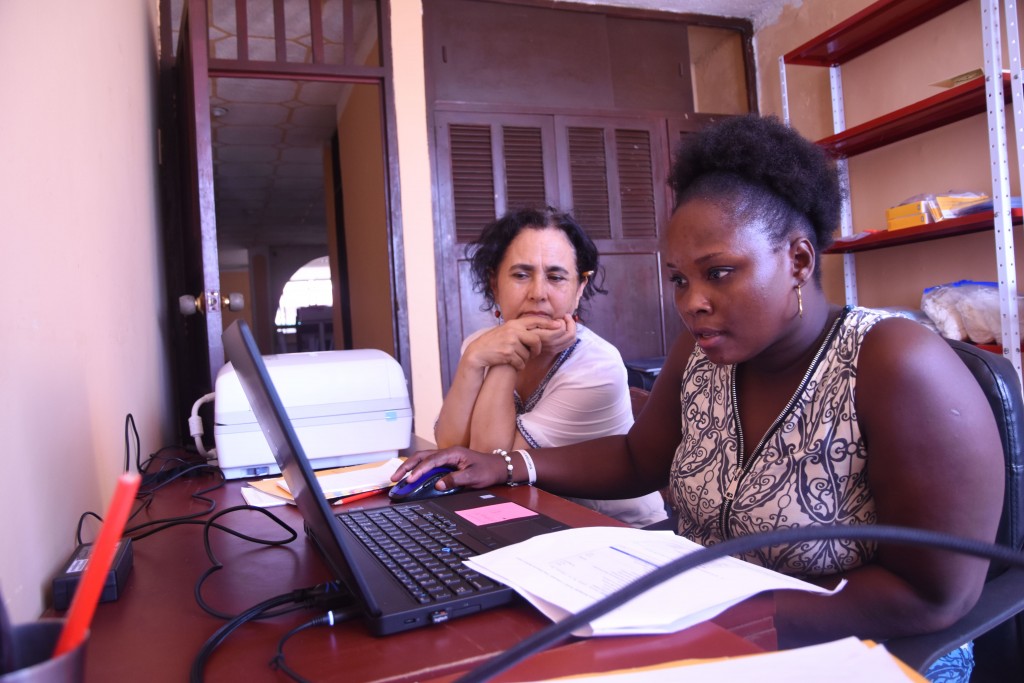
While LLILAS Benson has been implementing post-custodial methods for over a decade, this grant project focuses on formalizing approaches to working with Latin American partners. In 2014, LLILAS Benson received a planning grant from the Mellon Foundation that introduced our first three archival partners, all concentrated in Central America, for the Latin American Digital Initiatives (LADI). This recent grant continues the work of the planning grant with the inclusion of new partners from Mexico, Colombia, and Brazil. Digitization projects are already under way in Mexico and Colombia, and the LLILAS Benson post-custodial team looks forward to beginning work with the Brazilian partner in early 2019 and finalizing the first phase of the overall grant project.
LEER EN ESPAÑOL
A lo largo de la costa pacífica de Colombia se encuentra la creciente ciudad de Buenaventura. Esta ciudad también es hogar a una de las mayores poblaciones de afrodescendientes en toda América Latina. Los afrocolombianos viven mayormente en las regiones costeras y las zonas rurales, pero recientemente han venido a vivir más en espacios urbanos—un resultado del desplazamiento.
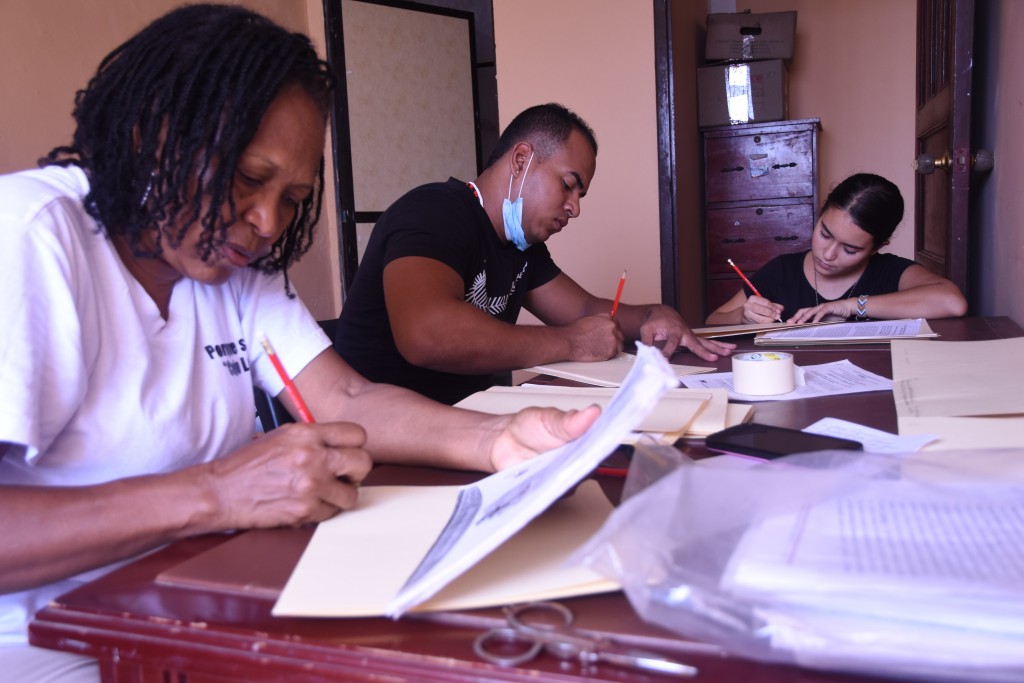
Este pasado octubre la unidad de iniciativas digitales de LLILAS Benson, Universidad de Texas en Austin, lanzó el segundo de tres proyectos pos-custodiales con nuestros nuevos compañeros, el Proceso de Comunidades Negras (PCN). Este proyecto se enfoca en los materiales históricos sobre el trabajo del Palenque Regional El Kongal de PCN, que se encuentran almacenados en la oficina de Buenaventura. Estos materiales, guardados por más de dos décadas, representan una adición esencial al cuerpo de documentos reunidos por LLILAS Benson sobre los derechos humanos. Éstos incluyen no sólo documentos de la guerra civil y los conflictos relacionados con el tráfico de drogas en Colombia, sino también testimonios del esfuerzo de las comunidades afrocolombianas para definir y asegurar el reconocimiento y los derechos etno-raciales en Colombia. La selección preliminar de materiales para digitalizar incluye fotografías de eventos culturales y reuniones para crear mapas comunitarios, agendas de asambleas nacionales anteriores, así como informes ambientales y humanitarios sobre las comunidades afrocolombianas.
Como parte de una subvención de la Fundación Andrew W. Mellon para el proyecto “Cultivating a Latin American Post-Custodial Archival Praxis” (Cultivando una praxis archivística pos-custodial en la América Latina), el equipo de LLILAS Benson coordinó un entrenamiento de duración de una semana para garantizar el éxito del proyecto. El entrenamiento incluyó la entrega de equipos de digitalización, la facilitación de recursos financieros para pagar a los técnicos, así como un repaso de los guías para completar el proyecto de digitalización de PCN. Se llevó a cabo en las oficinas de PCN en Buenaventura y fue dirigido por Itza Carbajal, bibliotecaria de metadatos de América Latina, y Anthony Dest, candidato al doctorado del Instituto de Estudios Latinoamericanos Teresa Lozano Long (LLILAS).
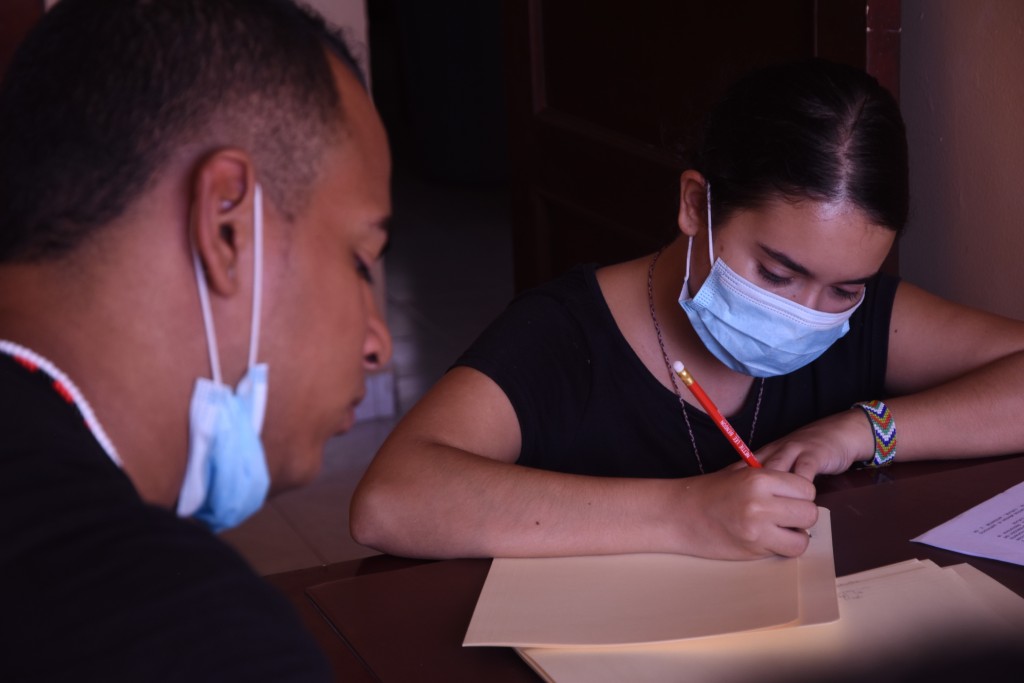
El entrenamiento abarcó varios temas: instrucciones para escanear materiales frágiles, cómo identificar y evaluar metadatos de materiales visuales como fotografías, y cómo planear el futuro del archivo histórico de PCN. Juntos, los representantes de LLILAS Benson y PCN revisaron y crearon metadatos para una serie de materiales que incluyeron fotografías de eventos de PCN, informes sobre las condiciones de vida de los afrocolombianos de la región, y documentos administrativos sobre varios esfuerzos de movilización comunitaria. Al completar el entrenamiento, los representantes de LLILAS Benson volvieron a los Estados Unidos dejando el equipo de digitalización de PCN para comenzar su trabajo importante.
En el modelo pos-custodial de LLILAS Benson, los archiveros trabajan junto a sus socios en otros sectores para conservar y administrar sus materiales históricos. Esto muchas veces incluye la digitalización de los materiales físicos para que éstos permanezcan en su lugar de origen. Las copias digitales entonces asumen el papel de recursos académicos que están disponibles a investigadores, estudiantes, profesoras y el público.
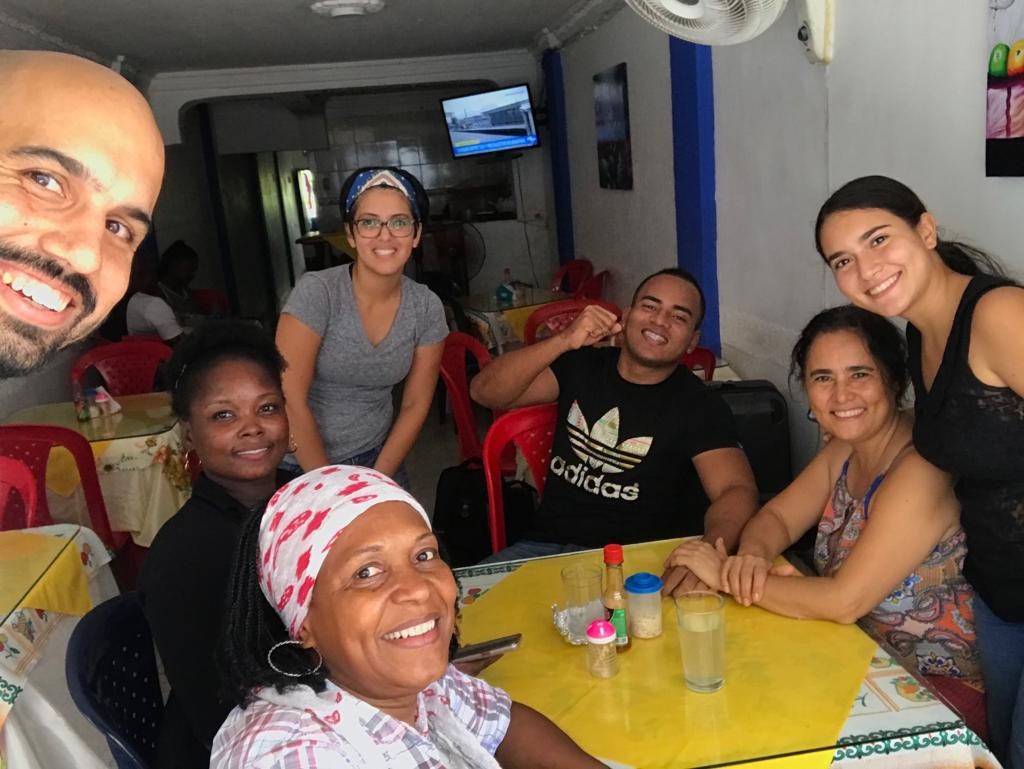
Si bien LLILAS Benson ha implementado los principios pos-custodiales por más de una década, este proyecto se concentra en formalizar el modelo de trabajo con organizaciones en la América Latina. En el año 2014, LLILAS Benson recibió una concesión de planificación (planning grant) de la Fundación Mellon que introdujo nuestros tres primeros archivos socios, todos basados en Centroamérica; el resultado fue Iniciativas Digitales Latinoamericanas (LADI). La concesión reciente nos permitirá continuar el trabajo de la concesión anterior, ya incluyendo nuevos socios no sólo en Colombia sino también en México y Brasil. Con los proyectos ya lanzados en México y Colombia, esperamos con mucho interés lanzar el trabajo en Brasil al comenzar el año 2019.
Itza A. Carbajal is the Latin American Metadata Librarian at LLILAS Benson Latin American Studies and Collections.

